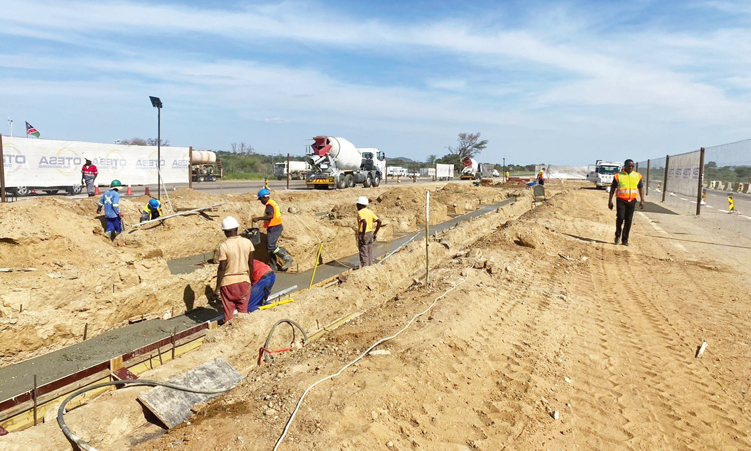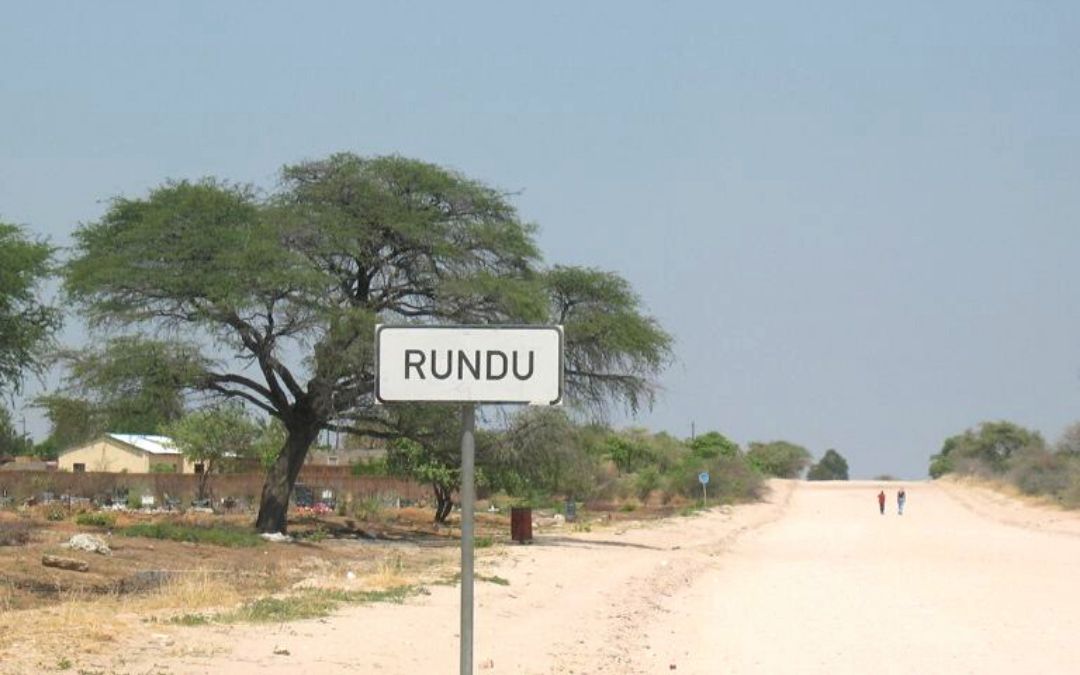A SHIPMENT containing 8 050 tonnes of food aid destined for Zambia arrived from the United States of America at Walvis Bay on Thursday.
The first consignment of food donated to the Zambian government by the World Food Programme, it consists of 7 876 tonnes of wheat and 174 tonnes of peas, and is the largest single shipment heading for Zambia ever handled by NamPort at Walvis Bay. The Namibian company Transworld Cargo will deliver the shipment to the Zambian capital, Lusaka, by road and rail via the Trans-Caprivi Corridor within the next two months.According to information from the Walvis Bay Corridor Group, bulk transport along the Trans-Caprivi Corridor has increased gradually since the completion of the Katima Mulilo bridge across the Zambezi River in May 2004.The route is covered by both road and rail up to Grootfontein, from where the highway is the only transport option to Zambia.The consignment follows a meeting in Walvis Bay between Namibian and Zambian transport authorities less than a fortnight ago, when opportunities for the optimal use of the Trans-Caprivi Corridor were discussed.Zambia, with a population of more than 11 million, needs some 18 400 tonnes of food aid to keep more than half a million people from starving to death, according to last year’s UNDP Human Development Report.Although the Zambian government reported a cereal production surplus of 413 000 metric tonnes, maize prices are falling steeply while maize meal prices remain unchanged.Desperate selling of produce and poor water and sanitation facilities are expected to increase food insecurity among vulnerable people.The World Food Programme also supports close to 70 000 refugees, mainly Congolese, in Zambia and assisted with the repatriation of about 12 000 Angolan refugees in the country.Since April, more than 30 000 orphans and vulnerable children in Namibia have benefited from food aid under the programme.It is estimated that Namibia required some 6 200 tonnes in food aid between July and December.The programme focuses mainly on providing assistance to orphans and vulnerable children, as well as people who suffer from HIV-AIDs and TB, in Namibia, Lesotho, Malawi, Mozambique, Swaziland, Zambia and Zimbabwe.Southern Africa is the only region in the world where the number of people living in abject poverty has grown in the past 20 years, according to UN reports.The Namibian company Transworld Cargo will deliver the shipment to the Zambian capital, Lusaka, by road and rail via the Trans-Caprivi Corridor within the next two months.According to information from the Walvis Bay Corridor Group, bulk transport along the Trans-Caprivi Corridor has increased gradually since the completion of the Katima Mulilo bridge across the Zambezi River in May 2004.The route is covered by both road and rail up to Grootfontein, from where the highway is the only transport option to Zambia.The consignment follows a meeting in Walvis Bay between Namibian and Zambian transport authorities less than a fortnight ago, when opportunities for the optimal use of the Trans-Caprivi Corridor were discussed.Zambia, with a population of more than 11 million, needs some 18 400 tonnes of food aid to keep more than half a million people from starving to death, according to last year’s UNDP Human Development Report.Although the Zambian government reported a cereal production surplus of 413 000 metric tonnes, maize prices are falling steeply while maize meal prices remain unchanged.Desperate selling of produce and poor water and sanitation facilities are expected to increase food insecurity among vulnerable people.The World Food Programme also supports close to 70 000 refugees, mainly Congolese, in Zambia and assisted with the repatriation of about 12 000 Angolan refugees in the country.Since April, more than 30 000 orphans and vulnerable children in Namibia have benefited from food aid under the programme.It is estimated that Namibia required some 6 200 tonnes in food aid between July and December.The programme focuses mainly on providing assistance to orphans and vulnerable children, as well as people who suffer from HIV-AIDs and TB, in Namibia, Lesotho, Malawi, Mozambique, Swaziland, Zambia and Zimbabwe.Southern Africa is the only region in the world where the number of people living in abject poverty has grown in the past 20 years, according to UN reports.
Stay informed with The Namibian – your source for credible journalism. Get in-depth reporting and opinions for
only N$85 a month. Invest in journalism, invest in democracy –
Subscribe Now!










